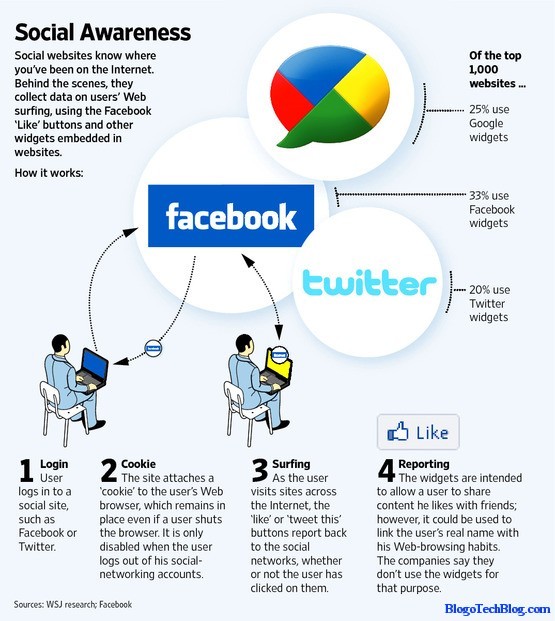You would obviously see Facebook like and Tweet buttons on almost all the websites, whether it is the like button for a URL or for a Page on Facebook. These social widgets on websites notify Facebook and Twitter that the user had visited the website even if you do not click on the like or Tweet button.
 <Credit>
<Credit>
According to a study on Wall Street Journal, the Facebook like and share button appears on a third of the world’s 1000 most visited websites. These widgets are meant for users to share the content of the website on the social network, but you might not be knowing that these widgets also track your online behaviour.
These widgets are obviously attractive and also a powerful way for tracking a user’s online habits. They could link users’ browsing habits to their social-networking profile, which often contains their name. For this to be known the user needs to be logged into Facebook at least once in the last month. Whenever a user visits Facebook.com homepage, Facebook places a cookie in the user’s computer but Facebook says that it is used only to prevent their site from cyber attacks.
The data tracked by Facebook through social widgets is just to provide the users with targeted ads. This is what Facebook says about it to Wall Street Journal. This data is tracked even if the user closes his browser or even if he shuts down his computer. If you want them not to track your data, you need to explicitly log out ot Facebook or Twitter.
I personally don’t feel that a user must object to such tracking of online behavior, because it is beneficial to the social networks, its users and website owners. These widgets help them deliver relevant ads and to show how many of your friends like a particular web page, Facebook must know who the user is. Knowing this is possible only by tracking your online activity through such social widgets.